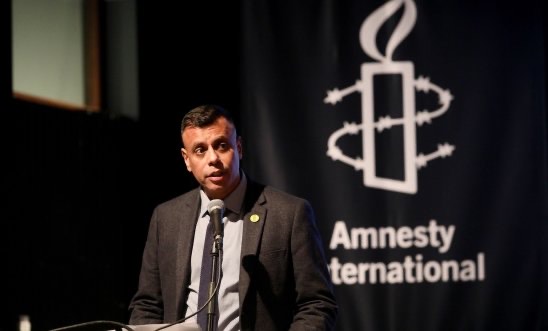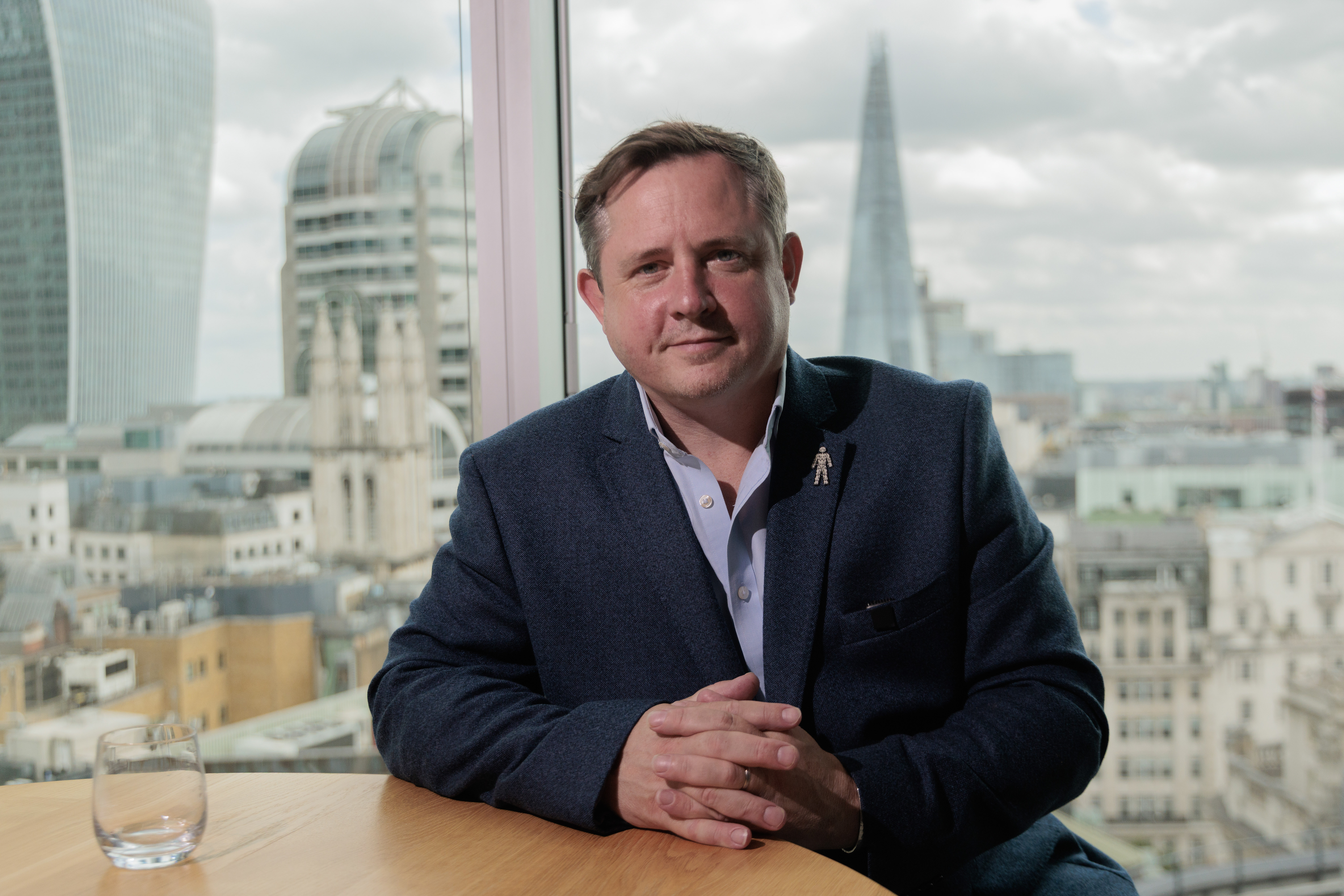Helen Goulden OBE, CEO at The Young Foundation, says the government’s new Resilience Action Plan highlights a persistent gap between awareness and action.
_____________________________________________________________________
The range of threats, risks and predictable crises facing the UK is growing, rapidly. It is highly likely that we will encounter more turbulence in the coming years. Not all of this can be prevented or mitigated.
Social infrastructure – such as libraries and community centres; publicly-accessible places where people can come together - networks of support (social capital), voluntary capacity, and trusted information-sharing are all vital to the functioning (and rebuilding) of an economy and society post-crisis. With that in mind, The Young Foundation’s report ‘Community, Not Catastrophe’ makes the case that civil society organisations should be recognised as ‘critical national infrastructure’ in the UK's disaster preparedness framework.
Time and again, communities and civil society organisations have proven to be the first and most effective responders when crises strike. During Covid-19, 1.3m mutual aid groups formed almost overnight. After the Grenfell Tower tragedy, community centres, faith institutions, and local organisations provided immediate shelter, resources, and advocacy.
Every time a major incident occurs, we say we ‘must make changes’ so ‘this never happens again’. But many of the events we are experiencing will happen again. And again, and again. We need to be better prepared.
Our new data shows that only a third (36%) of Brits are confident that the government would support them to recover and rebuild after a crisis, and over half (52%) don’t trust the government to be transparent about what it is doing during a crisis. Yet, 51% think their communities come together in challenging times, and almost three quarters (73%) said they would be willing to support their neighbours or local community in times of crisis. But only 47% say they know how to offer that support.
While it’s heartening to see the new Resilience Action Plan recognising the need for much wider partnership between government, and the voluntary, community and faith sectors, the continued reliance on www.gov.uk/prepare as the primary tool for household preparedness highlights a persistent gap between awareness and action. Bridging that gap requires more proactive, community-based support from Local Resilience Forums and the voluntary sector. In this area there is real potential for innovation and opportunities to find new ways of reaching those for whom crisis preparedness is just not a primary concern. Additionally, the top-down approach to resilience exercises needs to shift towards grassroots-led initiatives. Identifying, supporting, and learning from community-led exercising efforts would be an invaluable next step, and we hope the government is open to listening and working with communities to drive real change forward.
Trusts, foundations, charities, investors, businesses, and state actors - who play a critical role in a national or local crisis to support local people and communities - are not always able to apply a ‘preparedness’ lens to their work and strategies. As extreme events become more frequent and severe, from flooding to pandemics, this has to change. And the charity and voluntary sector must be respected, recognised and invested in to continue this work as an essential actor in building national resilience.
The causes of our crisis are often varied and unpredictable. But the impacts of those crises are often common and predictable. And they consistently fall hardest on those who are already vulnerable and marginalised.
Yet, despite having proved its essential role during crisis, civil society is often treated as an afterthought in preparedness planning – the postscript in preparedness strategies; often the last member on a Local Resilience Forum list. A ‘community chasm’ exists in how we understand strategies for ‘preparedness’ in the face of multiple and varied threats. Civil society has to become our first thought in planning civil contingency infrastructure. I’d like to take this opportunity to call on the sector to unite in our approach. We are going to face more dangers. The social connections and trust we have in each other will be the strongest determining factor of whether we all survive those dangers. The charity and voluntary sectors stand at the centre of these social connections; intimately entwined in the social fabric of our communities. By embracing our role in preparedness, advocating for appropriate recognition and resources, and ensuring equity remains at the heart of our approach, civil society can help build a truly resilient ‘whole society’ response to the challenges ahead. If it is supported and respected by government to do so.
Read Community, Not Catastrophe here
_______________________________________________________________
As Chief Executive Officer of The Young Foundation, Helen leads its multi-disciplinary team of researchers and innovators to support stronger communities across the UK.
Prior to joining The Young Foundation, she spent nine years at Nesta as Executive Director, supporting, funding and scaling innovation in civil society, social tech, government, arts and education. Previous roles have included work within the private sector developing digital innovation strategies and solutions for global corporate clients. She spent five years consulting in the Cabinet Office, Office of the Deputy Prime Minister and the Department for Communities and Local Government (DCLG), developing national innovation programmes for local government and leading research and development for interactive TV public services.
Helen is also a Trustee of the Big Education Trust and a Non Executive Director of Figurative, an arts-based social investment fund.
Helen was awarded an OBE for services to the development of sustainable communities in the 2023 New Year Honours List.
Latest News
-
Civil Society Covenant blighted by delays and U-turns, report warns
-
More than 30 jobs at risk as hospice charity looks to close home care service
-
Cranfield Trust: A guide for charity leaders on navigating local authority devolution
-
Friday funding roundup - 20 February
-
Former youth charity chief to lead corporate social responsibility organisation
-
Christian charity’s failed bid to buy a new church breached fundraising code
Charity Times video Q&A: In conversation with Hilda Hayo, CEO of Dementia UK
Charity Times editor, Lauren Weymouth, is joined by Dementia UK CEO, Hilda Hayo to discuss why the charity receives such high workplace satisfaction results, what a positive working culture looks like and the importance of lived experience among staff. The pair talk about challenges facing the charity, the impact felt by the pandemic and how it's striving to overcome obstacles and continue to be a highly impactful organisation for anybody affected by dementia.
Charity Times Awards 2023
Mitigating risk and reducing claims

The cost-of-living crisis is impacting charities in a number of ways, including the risks they take. Endsleigh Insurance’s* senior risk management consultant Scott Crichton joins Charity Times to discuss the ramifications of prioritising certain types of risk over others, the financial implications risk can have if not managed properly, and tips for charities to help manage those risks.
* Coming soon… Howden, the new name for Endsleigh.
* Coming soon… Howden, the new name for Endsleigh.
Better Society

© 2021 Perspective Publishing Privacy & Cookies














Recent Stories